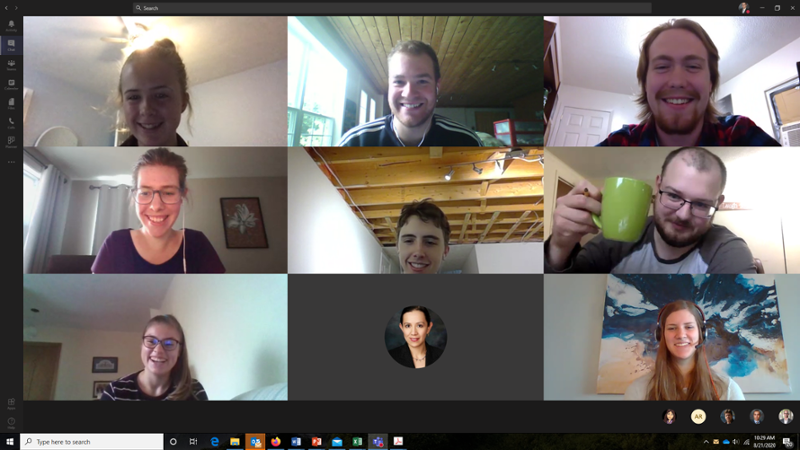A Summer of Research for Civil Engineering Undergraduate Students
Author: Engineering Alumni Office
Posted on Sep 14, 2020
Category: Research Spotlight , Student Spotlight

This summer as the COVID-19 pandemic continued to play out, undergraduate students in UNB’s civil engineering program took advantage of remote collaboration tools to come together and discuss research projects they’ve been working on for the past number of months.
Dr. Jeff Rankin, chair of the Civil Engineering Department, says the department and faculty have been looking for more opportunities to incorporate experiential learning into the curriculum and student experience, and undergraduate research projects have emerged as one of them. “We have a strong senior year class and some interesting project and funding opportunities, so we took advantage of this time during the pandemic to offer additional research experiences.”
The students worked across structural, transportation, hydrotechnical and construction groups with a faculty supervisor. Projects and funding came from NSERC awards and grants, MITACS student research funding, MITACS COVID-19 research funding, industry co-op positions and existing research funding from the department.
Projects included studies on the recyclability of concrete wastewater, roundabout collisions and trail crossing speeds, recyclable materials in asphalt, bridge renewal, dam fishway modeling, accessible housing and future-ready infrastructure. Field work protocols followed COVID-19 safety operational plans and labs began opening up in late spring for experimental research like testing of asphalt, concrete and sensors. Some students did their research completely remotely, checking in via video chats with their supervisors.
Near the end of the summer, 8 of the 11 students doing active research came together in an online forum to present their projects and findings to their supervisors and each other. “It was a really good discussion and students got to see how projects complimented each other and sparked more ideas,” Dr. Rankin said. “It was exciting to see how passionate they were about their projects.”
“We want to give undergraduate students the opportunity to do research and find out if they enjoy it or not. It helps cultivate future graduate researchers, and allows them to put the skills and knowledge they’ve been learning in the classroom to use on real-world issues.”
The civil engineering department offers a research thesis option and awards for students going into their final year, and some of the 11 who spent their summer researching are electing to continue with their topics into the academic year. They’ll continue working with faculty and sometimes an industry supervisor and they’ll be able to apply for an accelerated master’s degree if they choose the research route. Industry partners make many of these valuable experiential learning and researching projects an option for students – partners include the City of Fredericton, NB Power, Ocean Steel, WSP Consulting, Alantra and the Nova Scotia and New Brunswick Transportation and Infrastructure departments.
“The majority of the projects had strong industry partners involved. We’re fortunate to have a tight-knit network of UNB engineering alumni and industry partners who are more than willing to hire and collaborate with our students. The academic world is changing as more and more courses go online and competition that used to be out of reach is now right down the street. Our big advantage is that we have alumni and practitioners we can lean on to give students practical experience. That makes all the difference.”
